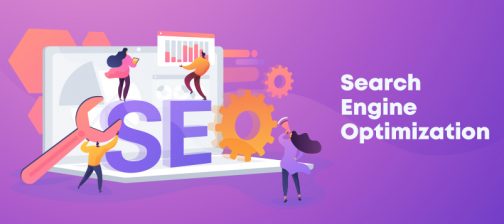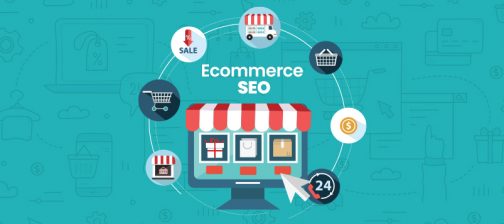The end of third-party cookies was on the horizon for years, but its termination means digital marketers must adopt new strategies and find alternatives to third party data. In June 2020, Google announced that in late 2023, it would start to phase out third-party cookies, and now it has been pushed back to 2024, and hopefully, new tracking technology will be replacing them. Removing third-party cookies makes it challenging to track the web activity of potential customers, which can impact certain factors like remarketing.
All along, third-party cookies have helped marketers target ads based on the data collected, and this ranges from gender and age to search history and user behavior on the website. This move by Google is to appease customers who are now more aware of how marketers use third party cookies to capture and use their personal data. In addition, Google declared that in early 2024, they have plans to transfer at least 1% of Chrome users to Privacy Sandbox, and they are restricting third-party cookies for those users. Nevertheless, Google’s plan to denounce third-party Google Chrome cookies completely in the 2nd half of 2024 is still in full swing.
So, what immediate changes can be seen when Google starts phasing out third-party cookies?
- There will be a major shift in advertising targeting
- There will be privacy improvements
- Evolving measurements and attributions as businesses will rely on alternative methodologies
- Ad Tech Companies will be impacted
- There will be regulatory considerations for enhancing user privacy
What happens next? Are advertisers at a fix?
As the advertisers have no third-party cookies to rely on for targeting information, they will have to look at first-party cookies. Usually stored on domains, these tracking cookies can be used for on-site optimization and other recommendation systems.
However, Google understands that advertisers rely on third-party Google Chrome cookies, which is why Google has started building up the Privacy Sandbox, a less intrusive solution for targeted advertising. Privacy Sandbox is a collection of technologies aiming to protect customer privacy online while offering businesses tools for successful advertising.
Additionally, as a part of Privacy Sandbox, the new Topics API is a proposal introduced by Google. This new proposal helps in cookie tracking as the algorithm works within the visitor’s browser to classify the users into high-interest level groups like food, fashion, or travel. This grouping done under broad categories are useful for targeting ads.
Who will be affected by these Google Chrome cookie changes?
The elimination of third-party cookies and the reliance on first-party cookies will favor large companies with access to first-party data. This is because such companies have the resources to use first-party data for developing effective algorithms to maximize profits.
However, companies that lack first-party data will find it challenging to target marketers and will need help in advertising. Nevertheless, these small companies can still utilize technologies like Google Topics to segment users into interest groups, thus leveraging necessary data.
Will this change give Google more control over retailers?
As there would be no third-party cookies from Chrome that can be utilized for advertising, retailers can only turn to Google services like Performance Max or Smart Shopping to gain visibility on Google Shopping to get better profits. However, both of these Google services are ‘black box’ advertising algorithms that advertise on the behalf of the retailer.
The main problem is that when you rely on these services, it gives immense power and control to one company. It’s Google who gets to decide which retailers can come for auction and enter the advertising space, the bid pricing, and the one who wins the auction.
There is a lack of accountability as much reliance is put on algorithms that give limited data feedback, like search term data. This also means that less data is accessible to the retailers for utilization in advertising optimization.
How can businesses prepare themselves for the change?
The best method would be to use first-party cookies for reacting to Google’s changes. The data derived from first-party cookies can be scrutinized to help you create targeted ads across Facebook, YouTube, and Google. The most common tactic for many businesses for increasing the amount of first-party data is through newsletters that help collect data. Creating high-quality useful content for the users and focusing on user interaction can also get you more data. Again, as stated above, utilizing Google’s Topic API is a great way to target user groups with similar interests. Promoting user accounts for services is also a great way to gather user-specific data that can be utilized to target ads.
After this Google Chrome cookie change, prioritizing and investing in other online marketing strategies is more important than before.
Nevertheless, the ideal thing you can do to help your advertising efforts is to control and leverage the data.
How advertisers and marketers are reacting to this change?
Many advertising agencies have greatly criticized this Google pivot, but there are organizations like GetApp that are researching its potential impact. GetApp has offered HubSpot exclusive data from a survey, and it has been discovered that:
- 41% of marketers think that the biggest challenge will be the inability to track correct data
- 44% of the marketers are predicting that they would require to increase their expenditure by 5% to 25% if they have to reach the same goals as they had set on 2021
- Because of Google’s new policy, 23% of the advertisers plan on investing and focusing in email marketing software
Final Words
As companies adapt to this new landscape, innovations and industry-wide changes will likely occur. Google’s approach to phasing out third-party cookies may evolve over time, and alternative technologies and solutions may emerge to address the changing advertising ecosystem. One good thing you can do is control and leverage your data to help target advertising. The experts at Prasarnet are completely transparent, and we brainstorm strategies to help your business reach its full potential even without tracking cookies, mass amounts of data, and hyper-targeted ads.
















